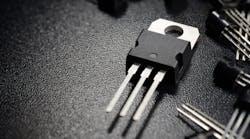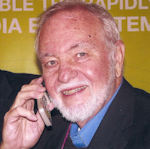Okay, let’s clear this up once and for all. Who was the real inventor of the transistor? In January of last year, Electronic Design published my article on the anniversary of the invention of the transistor. I got it mostly right, but recently I received a note that has me initiating this clarification. In the article, I said:
“The various historical records say that the transistor was invented Dec. 23, 1947 at AT&T’s Bell Laboratories by scientists William Shockley, John Bardeen, and Walter Brattain. On that day, they demonstrated transistor amplification with a point contact transistor.”
What I should have said was that Bardeen and Brattain did indeed invent the first transistor, a point contact type. However, Shockley was not included in that patent. Later, in 1948, Shockley developed the first bipolar transistor. In 1956, Shockley moved to California and established Shockley Semiconductor, one of the first, if not the first, semiconductor company in what we now know as Silicon Valley. And the rest is history, as they say. More details can be found in Shockley’s definitive biography Broken Genius by Joel Shurkin.
The note I received that pointed out this discrepancy was from Shockley’s son Dick Shockley. Dick is a physicist and received his first degree at Stanford and later a PhD at USC. He’s retired emeritus from the Naval Information Warfare Center (NIWC) in San Diego. His specialties include nonlinear waves, undersea acoustics, and other esoteric subjects.
I want to thank Dick for this clarification. And, maybe more importantly, he unknowingly revealed one major truth: how history gets distorted over time. This happens repeatedly. The start of Silicon Valley is an example. There many stories about who did what and when. I couldn’t confirm that Shockley Semiconductor was the first semiconductor company, but my guess is that it holds such a distinction, although you don’t hear much about it.
One of Shockley’s main contributions was his vision of using silicon rather than germanium to make BJTs. In addition, he may have inadvertently spawned the rest of the semiconductor industry. The highly competent team assembled by Shockley later left to form spin-offs such as Fairchild and ultimately others like Intel and AMD.
Other Historical Conjectures
Another instance of historical conjecture is that of personal computers. People still worry about who was first to do this or that and when. There are multiple versions of this as you might expect. I wrote my versions of this a few years back, for whatever it is worth—see here and here.
Yet another example is that Marconi is generally given credit for discovering radio. While he played a significant role in developing wireless equipment and services, the real inventors were probably Hertz and Tesla. How could this significant discovery get distorted? Should we include Maxwell?
And who invented the first integrated circuit? Was it Jack Kilby at Texas Instruments or Robert Noyce of Fairchild? As it turns out, they both share in the patent. They worked independently but concurrently and had different ideas about what an IC is and how it’s made. History got that one right. But how much other history is distorted or just wrong? I suppose, after a long while, you can make up anything you want and claim it to be historically correct. Who will question it? Many of you could give other examples of this.
The takeaway here is that the invention of the bipolar junction transistor was the milestone that kicked off the semiconductor industries. A massive contribution. That lead to the integrated circuit and later to the microcomputer. It’s hard to imagine the world without those developments. If it were not for that one invention, the BJT, you and I would probably not even be here. Thanks, Dr. Shockley. And thanks to Dick Shockley for bringing this to our attention.


